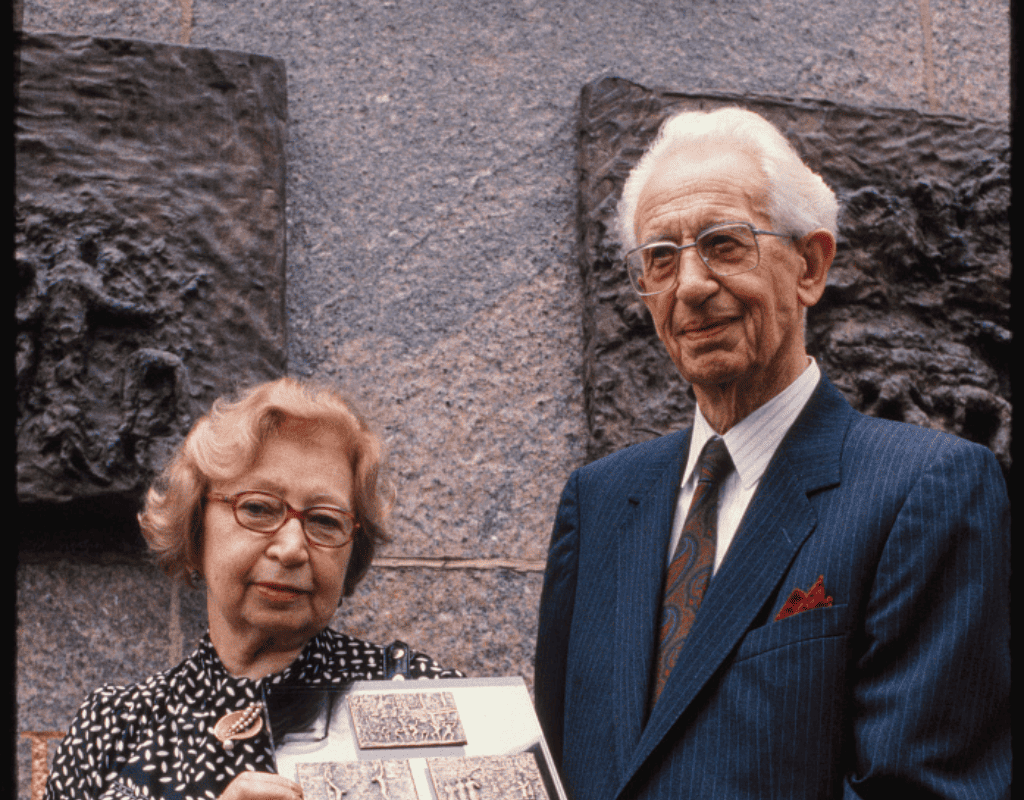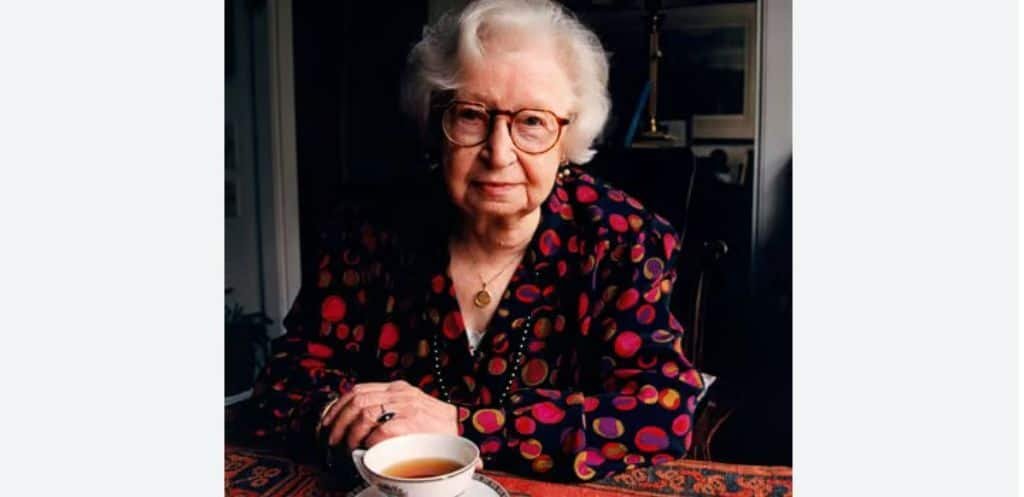People are eager to know more about Miep Gies Son Paul Gies whereabouts.
Miep Gies helped Anne Frank and her family during the Holocaust. She was very brave and did something important that people remember.
People know a lot about Miep’s life, but not much is known about Miep Gies’ son, Paul Gies, and what he did with his life. This article explores where Paul is and talks about his family’s remarkable contributions and how they have affected things.
Let’s learn about Paul Gies and his connection to bravery and kindness, which is often overlooked, from Miep’s brave deeds to her long-lasting impact.
Also Read: Was Miep Gies Arrested And Punished? What Did She Do?
Where Is Miep Gies son Paul Gies? Husband Details
Miep Gies’s husband was Jan Gies, also known as Jan Augustus Gies. Jan played a significant role alongside Miep in sheltering Anne Frank, her family, and others from Nazi persecution during World War II.
While Jan was not employed at Otto Frank’s Company, he served on the Supervisory Board and actively assisted those in hiding. Jan Gies was a key figure in the Dutch Resistance, opposing the Nazi occupation.
 Miep Gies’s husband was Jan Gies, a key figure in the Dutch Resistance during World War II. Her son, Paul Gies, maintains a private life. (Source: Wikipedia)
Miep Gies’s husband was Jan Gies, a key figure in the Dutch Resistance during World War II. Her son, Paul Gies, maintains a private life. (Source: Wikipedia)
He frequently visited the Secret Annex and supported the individuals in hiding, such as bringing books and distributing coupons. Jan and Miep got married during the summer of 1941, with their wedding witnessed by Otto Frank and attended by Anne.
After the war, Jan Gies continued to live a relatively private life. He passed away in 1993 at 87 due to kidney failure, surrounded by his loved ones. Jan was survived by his wife, Miep Gies, who lived until 2010.
Regarding Miep Gies’ son, Paul Gies, there is limited information about his life. Paul was born in 1950, and he is their only child. He has chosen to maintain a relatively private life, and thus, details about his current whereabouts or activities are not widely known.
The legacy of Jan and Miep Gies lives on through their courageous efforts to protect and support those in hiding during the Holocaust. Their actions, alongside Miep’s connection to Anne Frank and her memoir “Anne Frank Remembered,” have left an indelible mark on history.
Also Read: Paula Yates Daughter Death: Peaches Geldof Autopsy Reveals Heroin Overdose
A Look at Miep Gies Parents
Miep Gies, born Hermine Santruschitz on February 15, 1909, in Vienna, Austria, had a humble and challenging early life. She was the second daughter of working-class Austrian parents.
Due to illness and impoverishment, young Hermine was sent to the Netherlands for care and was placed with the Nieuwenburg family in Leiden in December 1920. The family affectionately nicknamed her Miep, and she formed a strong bond with her foster family.
 Miep Gies had a challenging early life in Austria and maintained a strong bond with her foster family in the Netherlands. (Source: Loc)
Miep Gies had a challenging early life in Austria and maintained a strong bond with her foster family in the Netherlands. (Source: Loc)
Miep’s parents remained in Vienna, but she maintained a connection with them. When she was 16, she visited her family, but her fear of being forced to stay in Vienna, away from her adopted country and family, prevented her from fully enjoying the visit. Thankfully, her parents understood and accepted her love for her foster family.
Miep finished her schooling at 18 and began working in the office of a textile Company in Amsterdam. However, at 24, she was laid off due to the Great Depression.
After unemployment, Miep learned of a possible job opportunity at Nederlandsche Opekta, a Company owned by Otto Frank, who had fled Germany with his family due to Nazi persecution.
Miep interviewed Otto Frank and bonded with him over their fractured Dutch and fluent German. She passed her jam-making test and started working for him.
During this time, she met her future husband, Jan Gies, and they courted for several years before getting married on July 16, 1941.
Unfortunately, there is limited information about Miep Gies’s parents and siblings. As her early life revolved around her foster family in the Netherlands, the details of her biological family members remain relatively unknown.
Miep’s focus and impact on history were primarily shaped by her relationship with the Frank family and her heroic actions during World War II.
Miep Gies Protected Anne Frank Notebooks And Papers
There is hardly anyone who hasn’t heard about Anne Frank, a young girl who recorded her experiences while hiding from the Nazi government. Anne’s diary reflects the pain, suffering, and constant fear of a young lady whose only fault was being Jewish.
While Anne Frank’s diary has been sold worldwide in multiple languages, it couldn’t have been done without her father, Otta Frank. Likewise, the person who preserved Anne’s diary and her notebooks was Miep Gies.
Gies and her husband helped the Franks throughout their hiding during the holocaust. Miep was responsible for delivering vegetables and foot items while also handling Otto’s business.
Aside from that, Miep and Jan hid another person Kuno van der Horst at their home. They were aware of the risk of being caught; however, their humanity didn’t allow them to neglect the people in need.
 Miep Gies safeguarded Anne Frank’s notebooks and journals after her arrest (Source: The Economist)
Miep Gies safeguarded Anne Frank’s notebooks and journals after her arrest (Source: The Economist)
Anne wrote about Miep in several of her diary entries. She called her a pack mule, as she carried many items daily. Moreover, Ms. Gies was against Anne keeping a journal since it would be dangerous if fallen at the hands of the Nazis.
However, when Gies found Anne’s scattered notes and papers, she didn’t hesitate to collect and safeguard them. She hoped to return them to their rightful owner; unfortunately, Anne never made it out of the Bergen-Belsen concentration camp.
After Anne Frank’s death was confirmed, Miep handed her notebooks to her dad, Otto, who had taken refuge in the Gies household. Otto published Anne’s diary and urged Ms. Gies to read it.
Miep Gies later shared how she was grateful she didn’t read Anne’s diary while she had stored it. She was afraid she would have burned it, considering it was dangerous to the people Frank wrote about.
